| | | | | | | Presented By The ONE Campaign | | | | Axios World | | By Dave Lawler ·Dec 02, 2021 | | Welcome back to Axios World, and a very happy Hanukkah if you're celebrating. - Tonight's edition (1,896 words, 7 minutes) takes off from South Africa with stops in Turkey and the Caribbean.
- Clarification: I wrote last week that I'd had a nice "Thanksgiving break up in Massachusetts." That generated some understandable confusion. No breakup, just bad phrasing. I appreciate the concern!
New arrival? Subscribe. | | | | | | 1 big thing: Scary data from South Africa |  Re-created from Our World in Data; Chart: Axios Visuals South Africa alerted the world to the Omicron variant. Now the data out of South Africa may serve as a warning of what we're facing. Driving the news: South Africa recorded 11,535 new cases today with 22.4% of tests coming back positive — up from an average of around 300 new cases with just a 2% test positivity rate 10 days earlier. The country's top public health officials expect that exponential rise to continue as Omicron rapidly becomes the dominant variant. - Meanwhile, preliminary evidence from South Africa's National Institute for Communicable Diseases (NICD) suggests people with "natural immunity" due to prior infection are three times more susceptible to reinfection from Omicron than from prior strains.
- "We believe that previous infection does not provide protection from Omicron," said Anne von Gottberg, who heads NICD's respiratory diseases laboratory. "We believe the number of cases will increase exponentially in all provinces of the country. We believe that vaccines will still, however, protect against severe disease."
- The NICD study did not examine the effectiveness of vaccines at preventing infection. Experts worry Omicron's high number of mutations may render vaccines significantly less effective.
- What's next: We'll soon have a sense of how infectious Omicron is compared to previous strains, experts say, but it will take longer to determine whether it causes more serious disease.
Zoom in: Stores and restaurants in Johannesburg remain crowded, the BBC's Pumza Fihlani reports, and President Cyril Ramaphosa is resisting the idea of fresh lockdowns, instead stressing the need to accelerate vaccination. - 24% of South Africans and 41% of adults are currently vaccinated, among the highest rates in Africa but far behind many wealthy countries. Supply had long been the major roadblock, but Ramaphosa is now focused on reducing vaccine hesitancy.
- In a televised address on Sunday, he announced "consultations" on potentially "making vaccination mandatory for specific activities and locations."
- The rate of vaccinations in South Africa had been falling for several weeks but has begun to tick upward since news of the new variant emerged.
Zoom out: The Omicron threat has convinced countries to push ahead with policies to encourage or mandate vaccination. - The German government today announced a "lockdown of the unvaccinated" — banning them from all businesses except essential ones like grocery stores and pharmacies — and said a nationwide vaccine mandate could become effective in February 2022.
- Greece plans to make residents over 60 get a shot or pay a monthly fine.
- The big picture: Many rich-world leaders, President Biden among them, are ruling out new lockdowns but pushing booster shots, rapid tests and masks.
Omicron's clearest effect to date is on travel, with bans continuing to be announced (mostly on southern Africa) and would-be tourists around the world reconsidering their plans. - Even beyond COVID-19, border controls will increasingly become a weapon against infectious disease — whether or not public health experts agree they are effective, Axios' Bryan Walsh writes.
Worth noting: It remains unclear whether Omicron actually developed in South Africa. It emerged on Tuesday that a case was detected in the Netherlands on Nov. 19. Go deeper: Omicron upends holiday travel plans |     | | | | | | 2. U.S. and EU signal "convergence" on China | 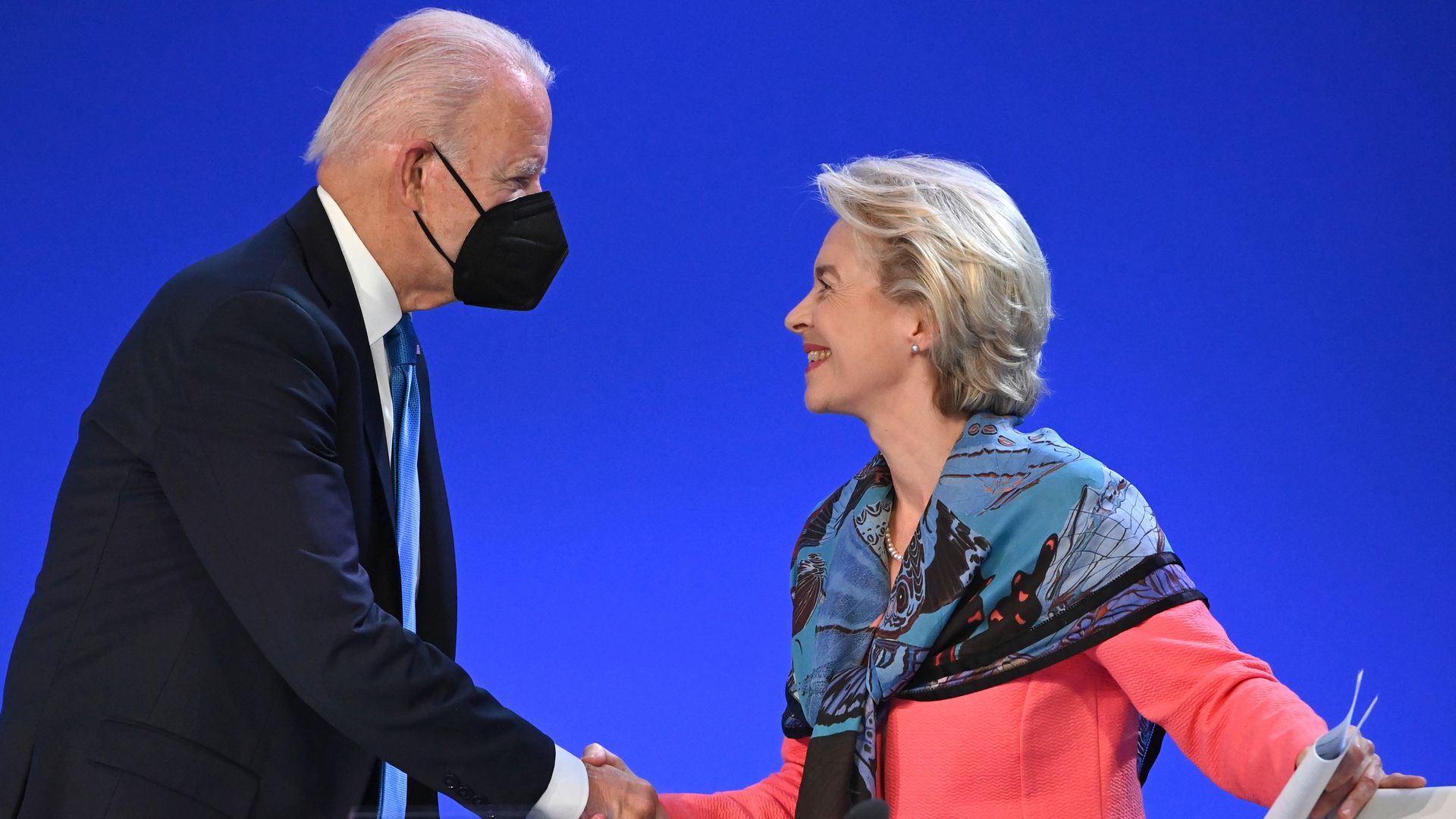 | | | President Biden and European Commission President Ursula von der Leyen. Photo: Jeff J Mitchell/Pool/Getty Images | | | | The U.S. and the European Union are adopting "increasingly convergent" views on the threat posed by the Chinese government, according to senior Biden administration officials, Axios' Zach Basu reports. Why it matters: European leaders were initially wary of President Biden's campaign to rally a coalition of U.S. allies to challenge China, hoping to duck a confrontation between the bloc's two largest trading partners. But the winds in Europe seem to be shifting, in part due to Beijing's growing belligerence. Driving the news: The U.S. and EU released a lengthy joint statement on Thursday pledging "continuous and close contacts" to "manage our competition and systemic rivalry with China responsibly." - The statement followed the second high-level U.S.-EU Dialogue on China, led by Deputy Secretary of State Wendy Sherman — who has been tipped as State's point person on China — and EU diplomat Stefano Sannino.
- A day earlier, the European Commission unveiled a €300 billion ($339 billion) "Global Gateway" development program designed to counter China's Belt and Road Initiative. The premise is similar to Biden's "Build Back Better World" initiative.
Meanwhile, the incoming German government — which mentioned Taiwan for the first time ever in its coalition agreement — is expected to move away from Chancellor Angela Merkel's pro-business, "dialogue-first" approach, says Noah Barkin, an EU-China analyst with Rhodium Group. - "We Europeans shouldn't make ourselves smaller than we are," Germany's incoming foreign minister, Annalena Baerbock, told a German newspaper this week. "China has massive interests on EU market. We should use leverage of common market much more strongly."
Flashback: A year ago, Merkel was pushing to finalize a major EU-China investment deal over objections from the incoming Biden administration. |     | | | | | | 3. Turkey's currency crisis | 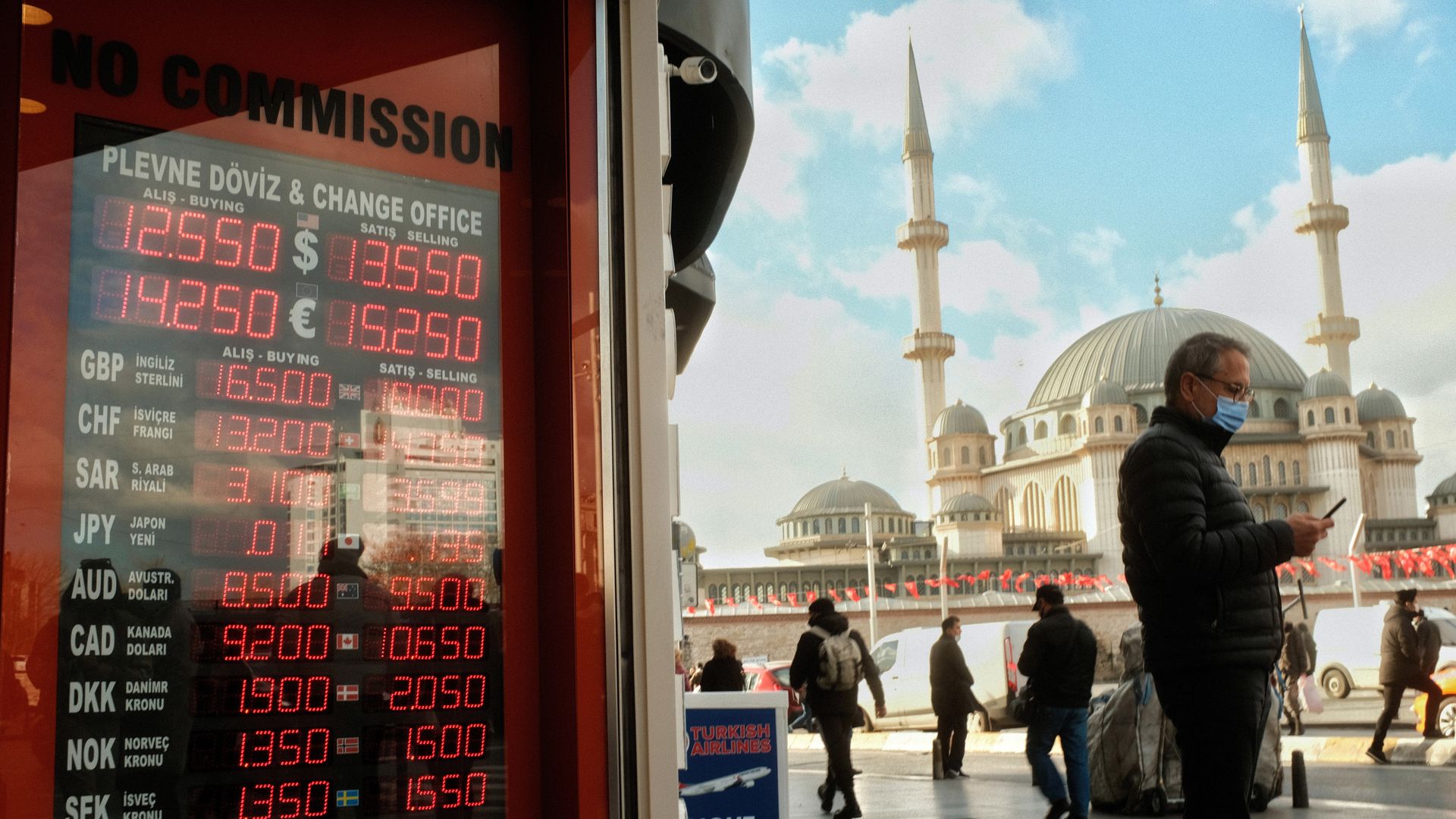 | | | A scenic spot to exchange currency. Photo: Umit Turhan Coskun/NurPhoto via Getty | | | | Turkey's central bank is scrambling to prop up the country's spiraling currency, the lira, as rising prices leave Turks struggling to afford essentials and venting their frustrations with the government. How it happened: President Recep Tayyip Erdoğan has pressured the central bank to cut interest rates this year even as the lira has lost nearly half its value against the dollar. He has long claimed, in stark contrast to economic orthodoxy, that low rates limit inflation. Driving the news: He replaced his more mainstream finance minister today with a loyalist, causing the lira to fall further, and continues to call for additional rate cuts. The opposition's call for protests has been heeded in several cities despite the threat of arrests. - Polls suggest Erdoğan's popularity is continuing to fall and that he trails potential opponents like Istanbul Mayor Ekrem Imamoglu in a hypothetical presidential matchup.
- Yes, but: Turkey isn't due for elections until June 2023. In the meantime, Erdoğan insisted in a televised address last week that Turkey's unorthodox economic policies won't change.
|     | | | | | | A message from The ONE Campaign | | The global fight against HIV/AIDS is under threat | | | 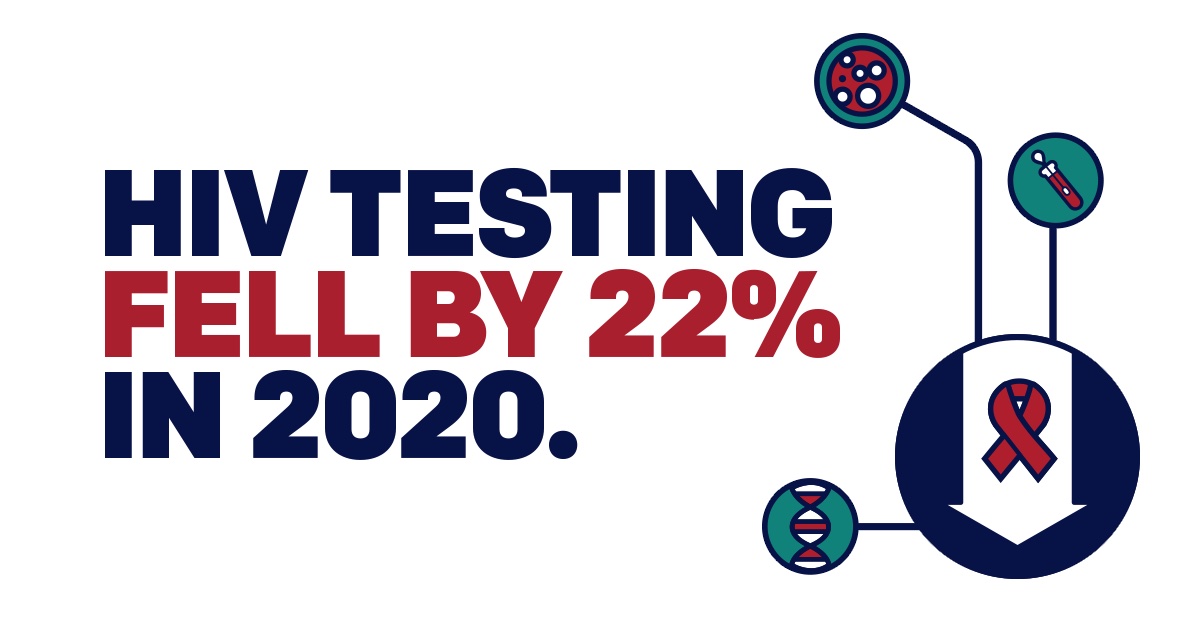 | | | | The pandemic has disrupted access to essential health services, threatening progress in the fight against AIDS. Worse yet, most people living with HIV/AIDS are in countries with limited access to COVID-19 vaccines. Take action. Sign our petition. | | | | | | Bonus: Where in the world |  | | | Screenshot via Apple Maps | | | | Today we're taking a Caribbean cruise, starting in city No. 1 and visiting the capitals of the five largest Caribbean countries or territories. Can you name the six stops? Scroll to the bottom for the answer. Correction: I wrote last week that Victoria Falls was the tallest waterfall in Africa. It is the largest, but not the tallest. Thanks to an eagle-eyed reader for catching that. |     | | | | | | 4. Global news roundup | 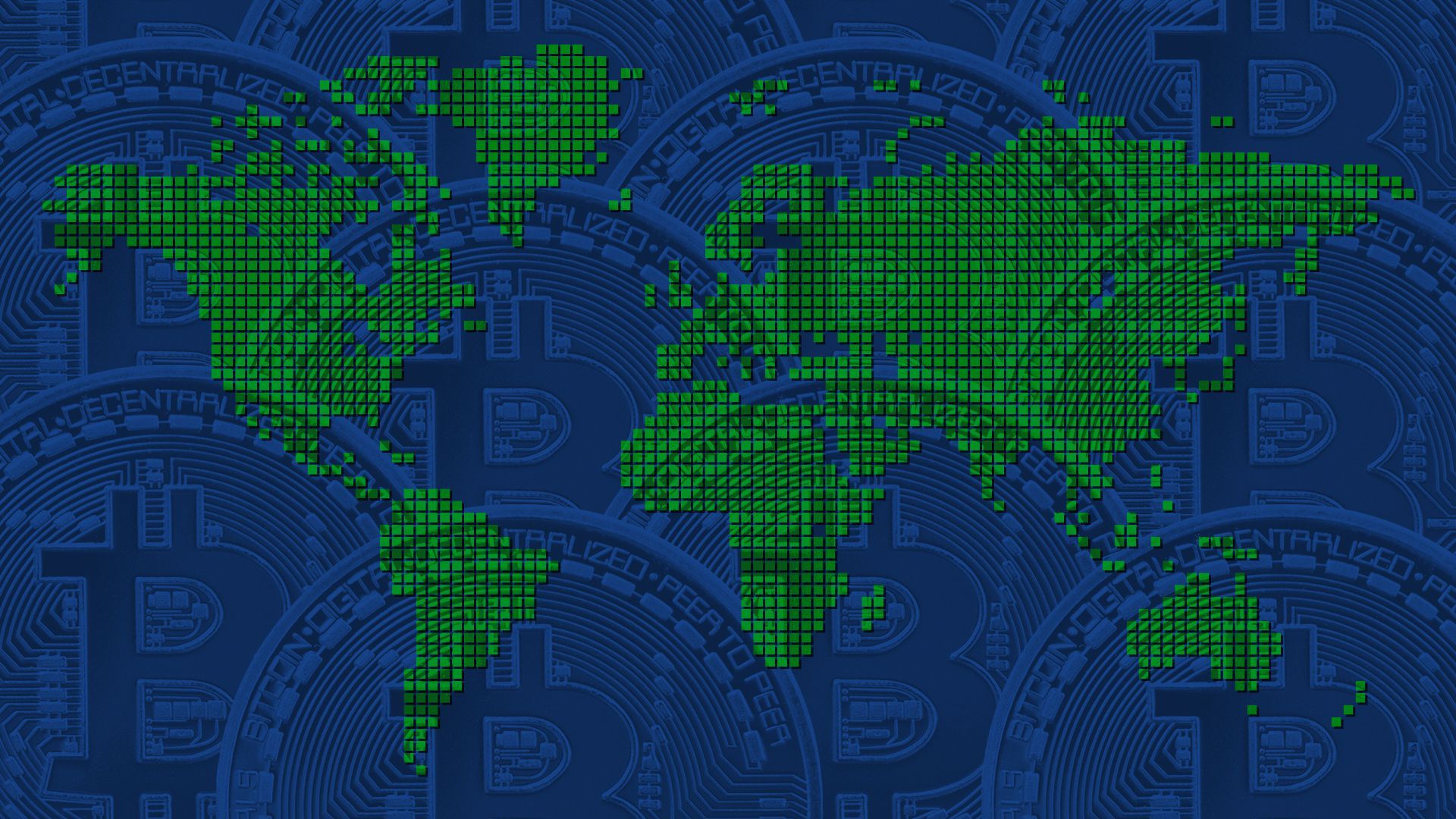 | | | Illustration: Megan Robinson/Axios | | | | 1. The International Olympic Committee and the Women's Tennis Association have taken very different approaches to the disappearance of Peng Shuai after she accused a former top Chinese government official of sexual assault. - The WTA has suspended all tournaments in China and Hong Kong despite fully expecting to lose millions of dollars.
- The IOC held a second video call with Peng on Thursday, announced an in-person meeting for January and claimed to be pursuing "quiet diplomacy."
- The Winter Games will be held in Beijing in February.
2. The two most populous countries in the world seem intent on effectively banning cryptocurrency, Axios' Felix Salmon writes - Driving the news: A bill set to be voted on by the Indian parliament looks likely to ban private crypto in favor of a cryptocurrency to be issued by the national bank. China has already banned cryptocurrency activity.
3. The U.S., EU, U.K. and Canada imposed a new round of coordinated sanctions on Belarus today. 4. Comings and goings... - Far-right TV pundit Éric Zemmour has entered the race for the French presidency.
- Brazilian President Jair Bolsonaro has joined the Liberal Party to cement his alliance with a powerful centrist bloc before his re-election run.
- Cambodian dictator Hun Sen, 69, has backed his eldest son to eventually replace him.
- A court in Libya has ruled that Seif al-Islam Gadhafi, son of Libya's late dictator, can run in the Dec. 24 presidential election. Another court ruled that warlord Khalifa Haftar can't run. Both were previously deemed ineligible by the electoral commission. It's all very confusing.
|     | | | | | | 5. Data du jour: Who logged on in 2021 | 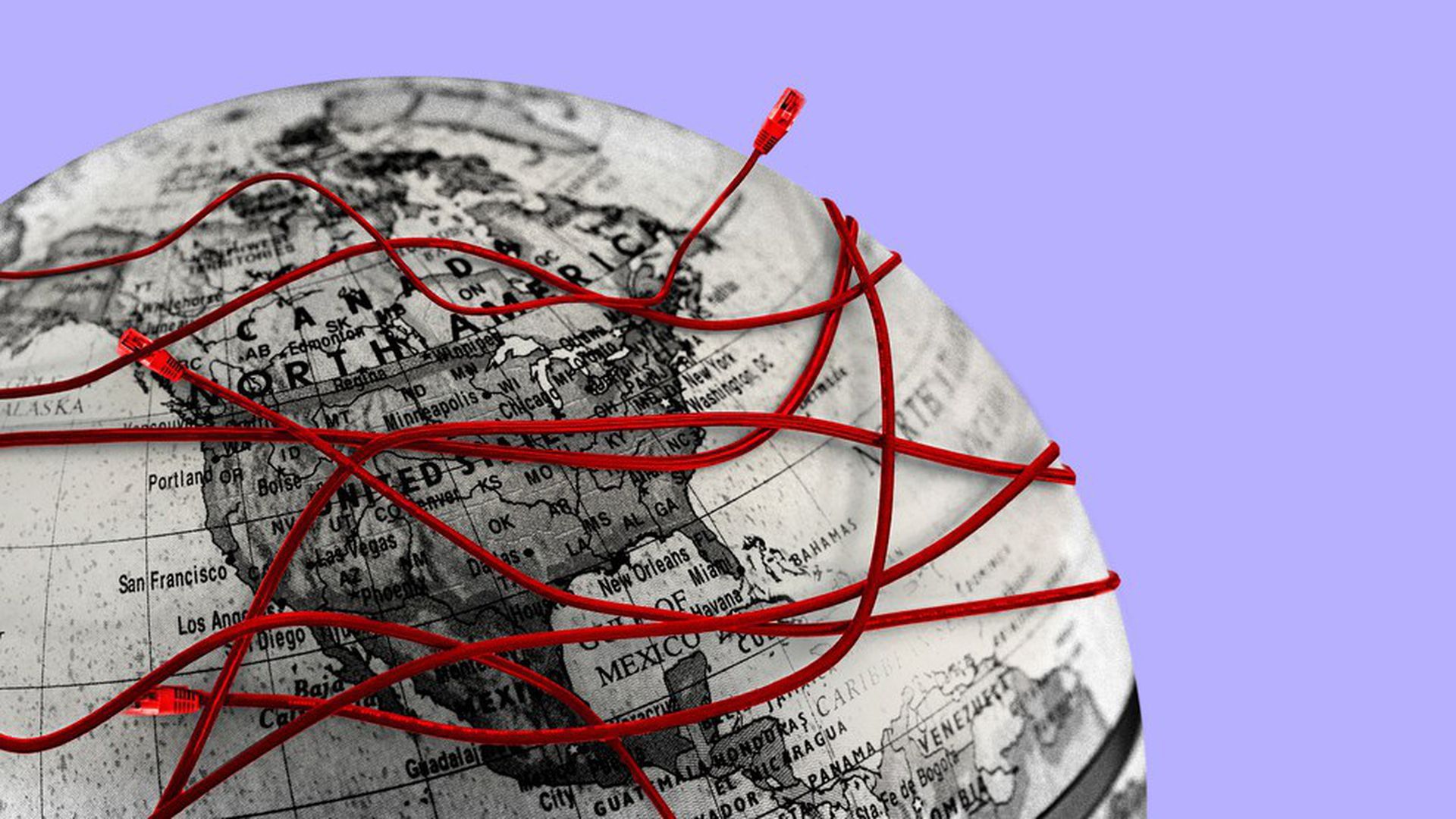 | | | Illustration: Rebecca Zisser/Axios | | | | The percentage of the global population using the internet surged from 54% to 63% between 2019 and 2021, with hundreds of millions of people logging on for the first time during the pandemic, according to the UN's International Telecommunication Union. Key findings: - Perhaps unsurprisingly, there's a big divide globally between residents of urban (76%) and rural (39%) areas. 15- to 24-year-olds (71%) are also more likely to use the internet than older people (57%).
- Africa (33%) is far behind. Internet usage is at least 60% in every other region.
- Mobile broadband is the main source of internet access in the developing world, and 4G networks now reach 88% of the world's population. Still, 390 million people aren't covered even by 2G.
- Mobile phones are becoming ubiquitous in much of the world, with 90+% of the populations in countries including Egypt, Mongolia, Peru and Thailand owning a cellphone — though less than 50% do in Kenya, Pakistan and Zambia.
Methodology |     | | | | | | 6. What I'm listening to: Zalmay Khalilzad on what went wrong | 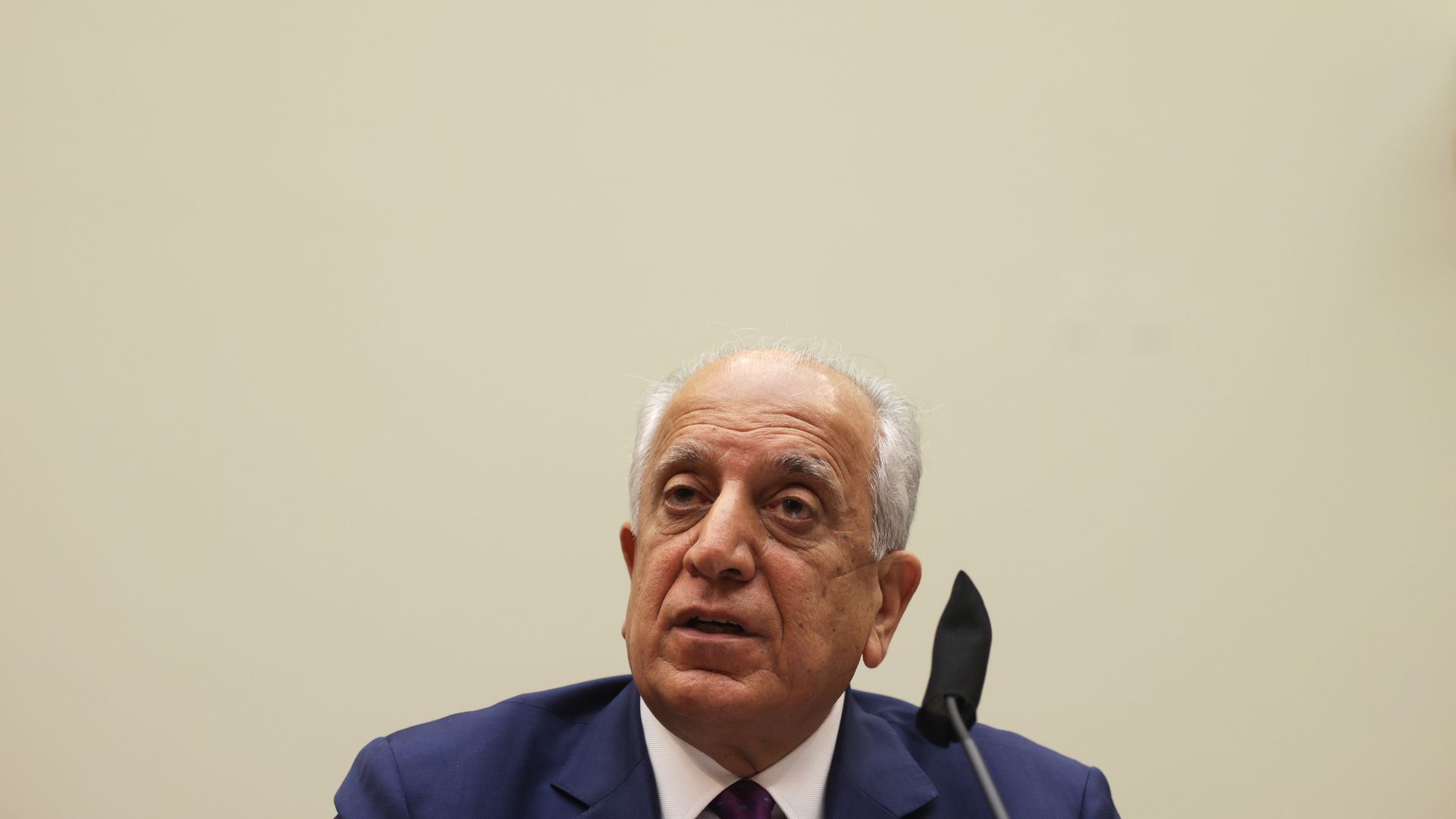 | | | Khalilzad. Photo: Alex Wong/Getty Images | | | | Zalmay Khalilzad was the point man for Afghan peace talks under Donald Trump and then Joe Biden. He stepped down after the fall of Kabul, having taken his share of the blame for the debacle. What he's saying: Khalilzad offered his perspective on why the war ended with a Taliban military victory rather than the political solution he was seeking on the "Intelligence Matters" podcast. He also says Secretary of State Tony Blinken disagreed with Biden's approach. Flashback: Khalilzad brokered the U.S.-Taliban deal in February 2020 that was supposed to set the stage for intra-Afghan negotiations to end the war. - But there was "no tight linkage" in the deal between the Taliban promises and the U.S. withdrawal timeline, he concedes. With Trump clearly wanting to get out and the Taliban gaining ground, leverage was limited.
- Khalilzad initially proposed a "50/50" power-sharing government to be led by a mutually acceptable figure. As the Taliban's hand grew stronger, it became clear they'd only accept a government they dominated.
- Still, President Ashraf Ghani insisted that any deal leave him in charge, Khalilzad says. Even late in the game, the envoy claims, he was prevented by "Washington" from leaning harder on the Afghan president to cut a deal and step aside.
President Biden, meanwhile, pushed ahead with full withdrawal due to his concern that the Taliban would resume attacks on U.S. troops and his "long-standing pessimism about Afghanistan and the willingness of Afghan leaders to come together," Khalilzad says. - He says Blinken was among those who preferred a conditions-based approach.
- As the Taliban closed in on Kabul, they agreed to delay their takeover for two weeks and negotiate a transfer of power with former President Hamid Karzai and other representatives, Khalilzad says.
- Then Ghani unexpectedly fled and the Taliban moved in.
What's next: Khalilzad contends that the U.S. should still be negotiating directly with the Taliban on issues like counterterrorism, girls' education and the Afghan assets frozen by Washington - "I think politics is hindering steps that our national interest demands," he says.
Go deeper: 100 former Afghan security members are dead or missing. |     | | | | | | 7. Stories we're watching | 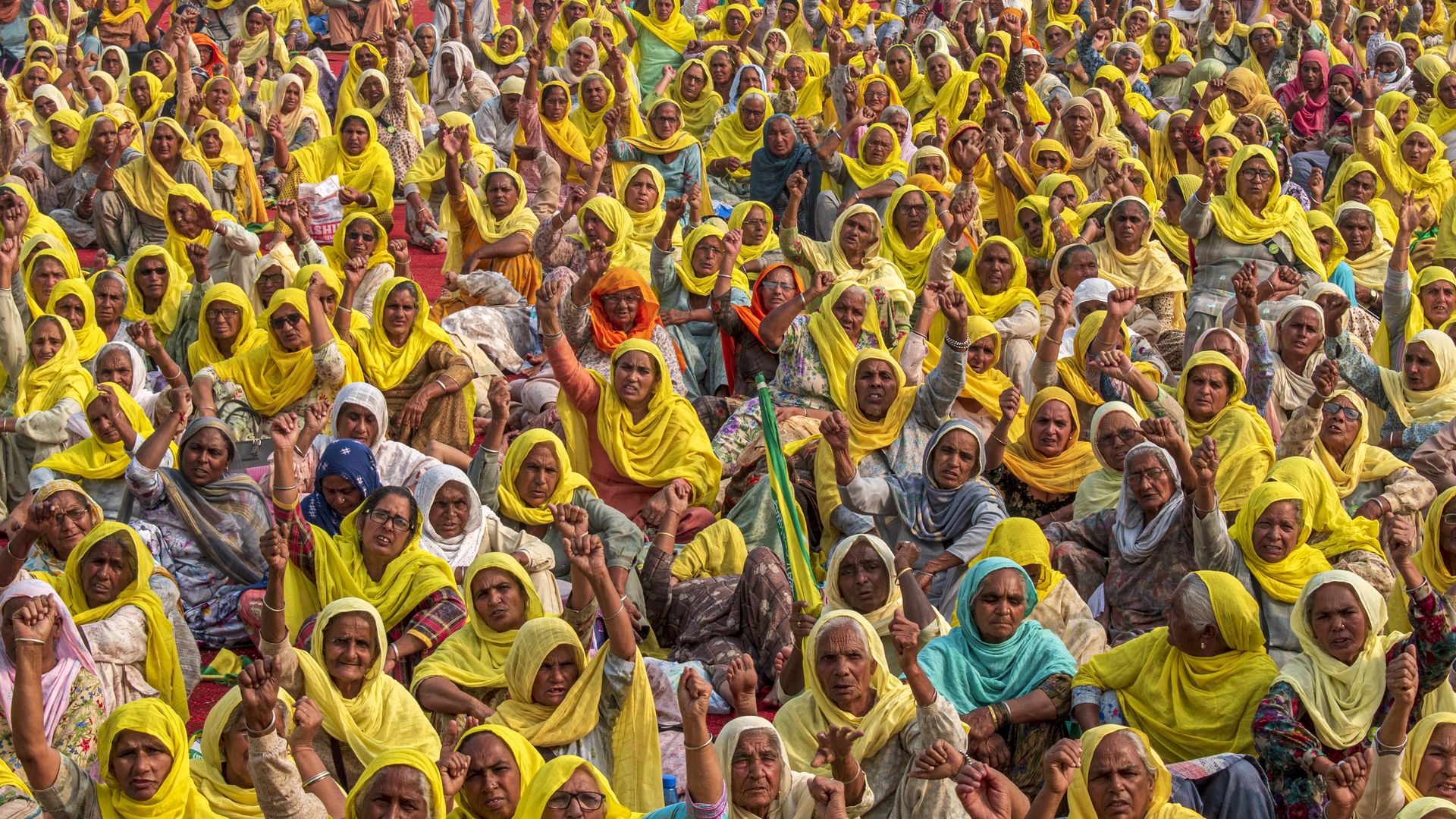 | | | Indian farmers mark one year of protest. Photo: Mohsin Javed/Pacific Press/LightRocket via Getty | | | - NATO chief: "Russia has no right to establish a sphere of influence"
- "Remain in Mexico" is back
- Pessimism in Iran talks
- Autonomous weapons warning
- Russia kicks out more U.S. diplomats
- Austin denounces China hypersonic missile pursuit
- France tests "flying taxis" for 2024 Summer Olympics
Quoted: "The best case is that we won't see an incursion by the Soviet Union into the Ukraine." — Secretary of Defense Lloyd Austin today. He meant Russia. |     | | | | | | A message from The ONE Campaign | | World AIDS Day 2021: AIDS is still a crisis | | | 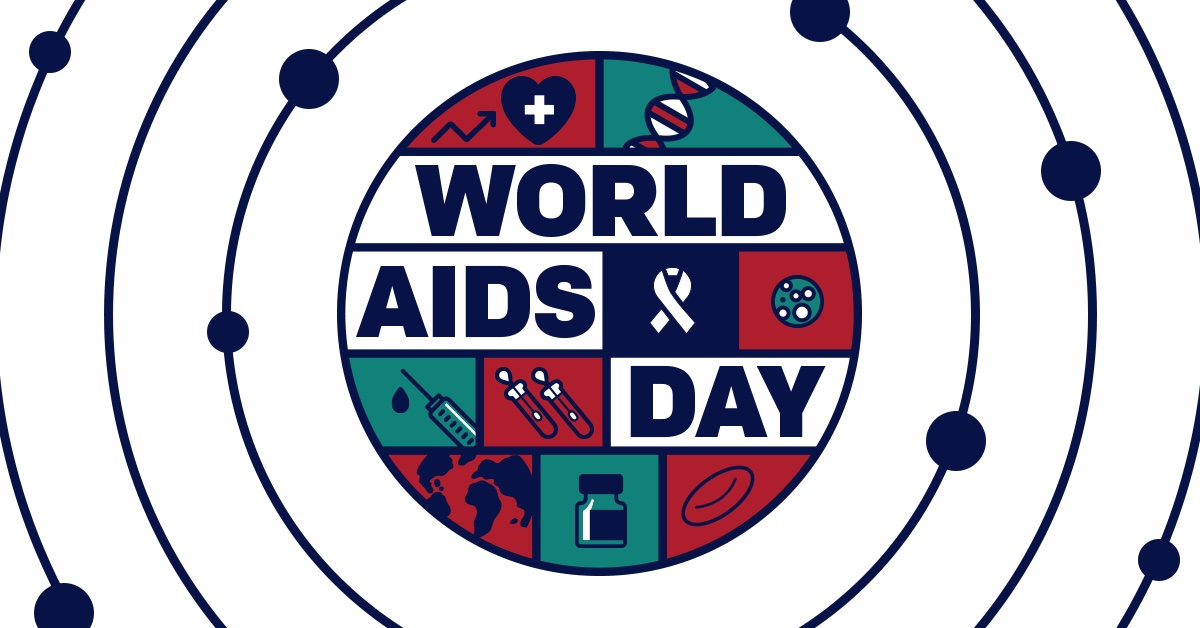 | | | | AIDS is not a disease of the past — it's a crisis now. Every day there are 4,000 new HIV infections, and in 2020 there were 680,000 AIDS-related deaths. This World AIDS Day, help us get the fight against AIDS back on track. Learn how you can help. | | | | Answers: Miami → Havana, Cuba → Port-au-Prince, Haiti → Santo Domingo, Dominican Republic → San Juan, Puerto Rico → Kingston, Jamaica. |  | | It'll help you deliver employee communications more effectively. | | | | | | Axios thanks our partners for supporting our newsletters. If you're interested in advertising, learn more here.
Sponsorship has no influence on editorial content. Axios, 3100 Clarendon Blvd, Suite 1300, Arlington VA 22201 | | | You received this email because you signed up for newsletters from Axios.
Change your preferences or unsubscribe here. | | | Was this email forwarded to you?
Sign up now to get Axios in your inbox. | | | | Follow Axios on social media:    | | | | | |












No comments:
Post a Comment